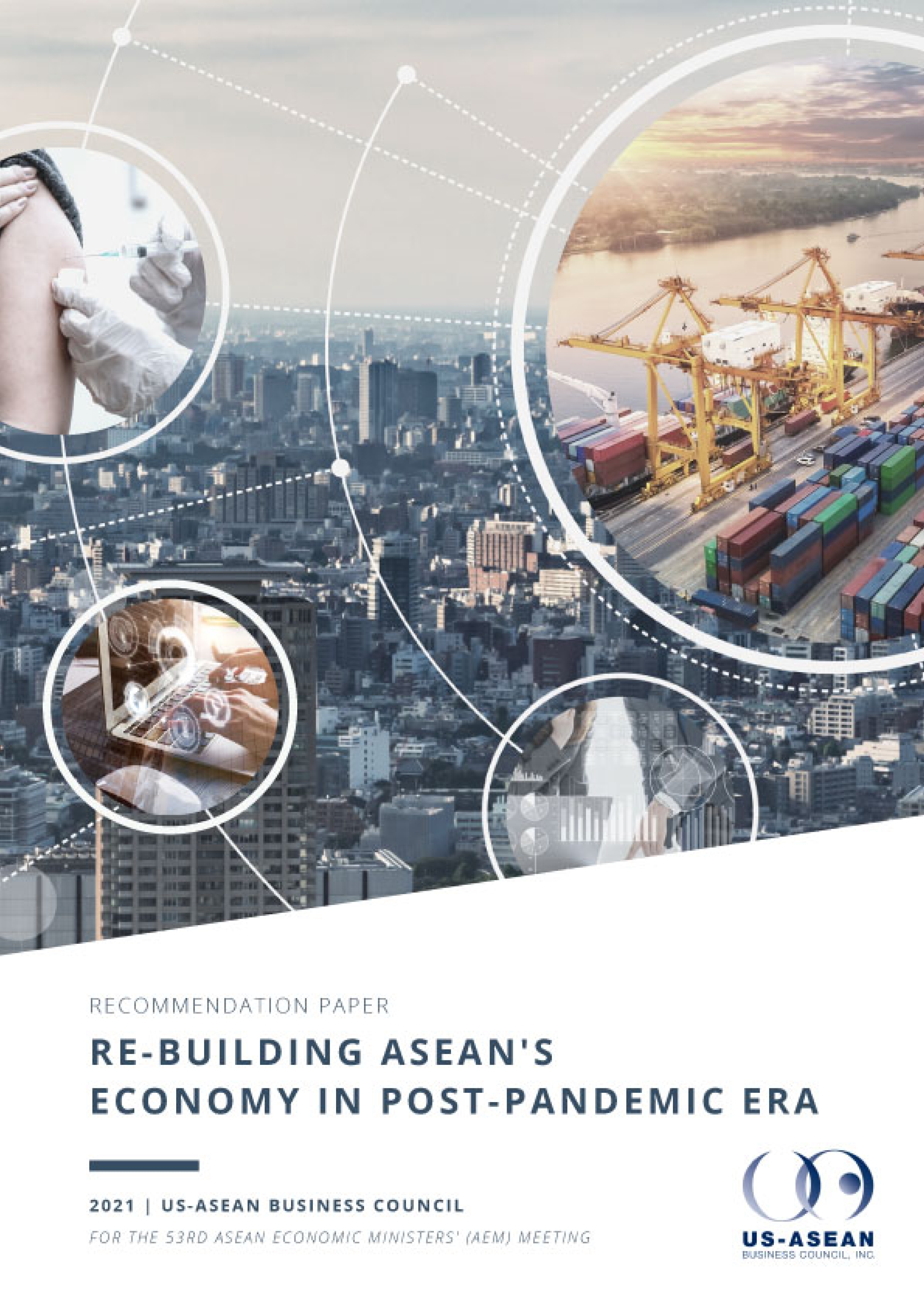
ASEAN continues to be the key trade and economic partner for the United States. The U.S. exports more than $122 billion in goods and services to ASEAN, the 4th largest after Canada, Mexico, and China, while the U.S. is the 2nd largest trading partner for ASEAN. More than 40,000 U.S. companies export to ASEAN, supporting more than 625,000 U.S. jobs. Nineteen U.S. states have more than 10,000 jobs that rely on exports to ASEAN Member States, and in 13 states ASEAN accounts for more than 20% of export-dependent jobs to the Indo-Pacific. According to the data from the U.S. Census Bureau, U.S.-ASEAN bilateral trade reached more than $300 billion in 2020, recording about 5% growth year-on-year, despite the global pandemic. The total value of U.S.-ASEAN bilateral trade has increased 98% from $177 billion to nearly $ 352 billion in the past decade. As the number one destination for U.S. investment in the Indo-Pacific, ASEAN has also enjoyed more than $338 billion of total U.S. foreign direct investment, more than the U.S. has invested in China, India, Japan, and South Korea combined.
As asserted by the recent visit of Vice President Kamala Harris to Singapore, the strategic importance of Southeast Asia is prominent in the U.S. foreign policy agenda. The American business community is also committed to strengthening its presence in the region, driving digital transformation, supporting ASEANSMEs and women in businesses, and bolstering the U.S. and ASEAN people-to-people connectivity through human capital development. The pandemic has, however, shone a spotlight on the resilience of supply chains in ASEAN and globally, through supply-related shocks and production stoppages. While supply chains in the Asia Pacific are relatively resilient, many companies are re-thinking their long-term strategies.
COVID-19 threats have impacted businesses differently across ASEAN and Asia Pacific by sector, for example, the automotive sector has experienced major disruption, while the technology and electronics sector suffer less. Supply chain managers across ASEAN are more optimistic about globalization and international supply chains than their counterparts in Europe and North America. Larger corporations are investing more heavily in the digitization of their supply chains since the onset of the pandemic, looking to diversify supply chains and move away from single sources, while smaller companies prefer localization. Abroad range of potential investment locations are favored by Asia Pacific supply chain managers, including markets in ASEAN like the Philippines, Indonesia, and Vietnam.
In order to build back better, ASEAN needs to forge its regional integration agenda to establish a more resilient regional supply chain, while at the same time enhance investment in the public health systems to prepare for future crises. The U.S.-ASEAN Business Council member companies have been actively participating in various COVID-19 relief efforts, including in distributing vaccines and other critical life-saving support through the Global Task Force on Pandemic Response. Access to vaccines will be key to restoring human health, thereby enabling the safe reopening of the borders and stimulating economic productivity and growth. To realize ASEAN’s full potentials, a close partnership between private and public sectors should be maintained and enhanced.
The Council and its members are committed to supporting ASEAN in accelerating its comprehensive recovery and advancing a thriving economy. This paper has identified a set of recommendations from the private sector to support ASEAN in implementing the ASEAN Comprehensive Recovery Framework (ACRF)and other related initiatives. Four main focus areas include (i) building resilience in supply chains; (ii)enhancing investment in pandemic response and preparedness; (iii) advancing ASEAN’s digital economy; and
(iv) recovering sustainably.



